Buckley recalls childhood in Sharon
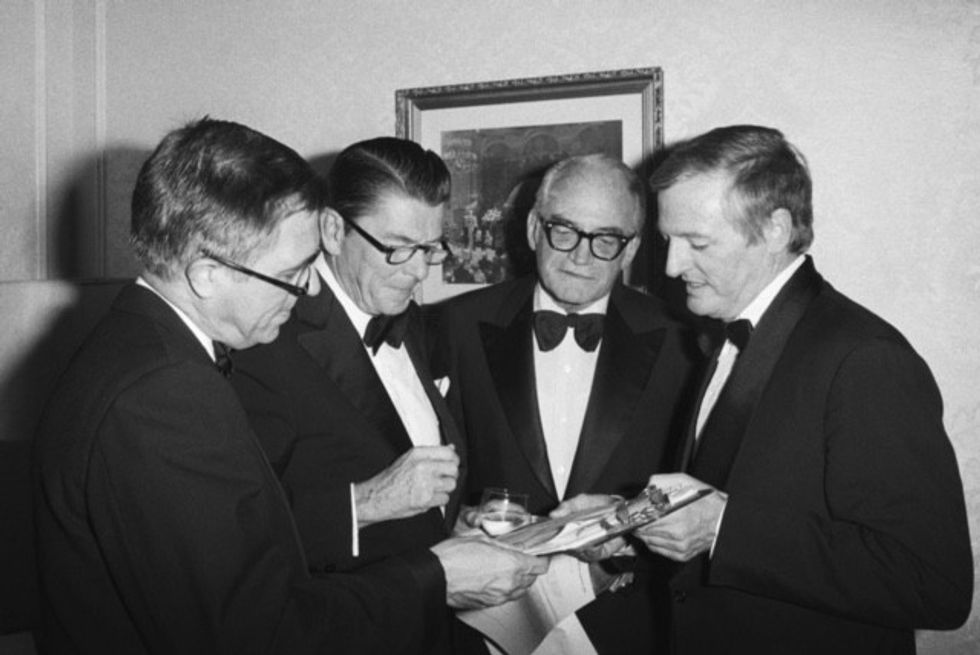
James Buckley, left, with President Ronald Reagan, Sen. Barry Goldwater and William F. Buckley Courtesy of the Sharon Historical Society

Brian Ross interviewed James Buckley on behalf of the Sharon Historical Society’s oral history project on Sept. 14, 2022.
Brian Ross: On behalf of the Sharon Historical Society, a warm welcome to a man who has spent much of his life from childhood on in Sharon. And for somebody who wanted to be a country lawyer went on to serve his country as a Navy officer in World War Two in the Pacific, a United States senator, under-secretary of State and a federal appellate judge in the D.C. Circuit. James Buckley, thank you so much. How does one refer to somebody who’s had all those positions? Judge? Senator?
Jim Buckley: As Jim how’s that?
BR: Jim Buckley, thank you so much for being here. And as we speak, you’ve just turned 98 years old and gone through a successful hip surgery. How are you feeling?
JB: So far ok. I’m on the right course, which could take some time for the muscles rediscover what they’re supposed to be doing but I’ll be getting there.
BR: And of course, you are also an esteemed member of our historical society in Sharon. Let me start by asking you, how did the Buckley family come to be in Sharon?
JB: A total oddity. My father was a Texan, from South Texas. He grew up in a small town there. My mother is from New Orleans. My father fell in love with Mexico, became a lawyer, went to Mexico, oil was discovered, and he became a lawyer for the oil companies and focused on the land and the oil business. My father was also a person of opinions, which he expressed freely - with the result that in time he was expelled from Mexico, but by that time he had created the company was involved in this area of the oil business, and there he was, newly married.
And you know, he was in his late 30s by then. What do you do? He spoke Spanish. The oil was discovered in Venezuela. Well, if you’re going to put the pieces together, you need something called money. Where is money? Wall Street. So my Southern parents suddenly found themselves in New York City. In due course, I was born there, the fourth of ten children. And in my third month, they had the good sense to move to Sharon, Connecticut. And that is where Sharon came into my heart where it still lives.
BR: That’s so wonderful to hear. Tell me your remembrances of being a child in Sharon. What was that like? What was it like to grow up in Sharon ?
JB: The best I can do is time to talk about being a teenager in Sharon in the 1930s. That is some time ago. By that time, Sharon had shrunk to, I think about 1800 people in 80 square miles, 60 square miles. But the peculiar thing about Sharon in those days was it was divided into very different groups. There were quote “the natives” , the people who worked the farms and all the rest of it and “the summer people.”
The “summer people” consisted of about 20 or 30 New York City families who, after schools closed in New York City, would move the entire household into one of these nice houses on South Main Street and so forth in Sharon, where they’d spend lovely summers, and then after Labor Day, they would disappear for whatever reason.
Although the Buckleys were in Sharon 12 months a year, I was educated in private schools the way that some of the people were. And so, in effect, I grew up with the “summer people”, although I was an honorary native. The summer people had their own social life and so forth. They had the Sharon Country Club and take it from there.
Why were there so many New York families doing this? And I think to get the answer to that, you have to go back to Sharon’s particular history. Unlike most of the towns in that general area and Litchfield County and so forth, Sharon was not settled by people who wanted to farm.
The people were drawn there because of the discovery of iron ore, abundant around 1700 and so on, iron ore along the border between Connecticut and New York. This drew entrepreneurs into Sharon Valley where they settled for many years, over 100 years, lively manufacturing.
So important inventions were made there. They made mousetraps. They also made explosive shells for the Civil War and so on. But you had a group of prosperous people who built nice homes in Sharon. And then by the end of the 1800s, the iron played out, all of those little industries kind of dying away. And there was Sharon sitting as an immaculate, pristine New England town with an inventory of nice houses that was beyond commuting distance from anywhere. Therefore, it couldn’t be spoiled by all kinds of new housing developments, etc., and that, for whatever reason, seemed to draw this category of New Yorkers.
And In in those days, no weekenders you never heard of, you didn’t know any weekenders. There were all the “summer people” who became part of Sharon in their own way and had their impact on Sharon.
One interesting impact had to do with the fact that, five or six of the New York doctors with homes in Sharon were very prominent in their professions while in New York. And during the the early thirties, this Sharon doctor, I forget what his name was, felt the need for kind of a nursing home. He was able to talk it up with the New Yorkers, who provided the backing, whatever it was that it required, they gave us what is now Sharon Hospital.
BR: And what’s your memory of what? What did the town look like as a teenager in the 1930? Did it look different than it is now?
JB: The significant difference between the Sharon I grew up in 80 years ago, 90 years ago, and what we have today is no elm trees. The Sharon Green was surrounded by two columns of magnificent Elms. They got destroyed when the Dutch elm disease went through there. But the buildings were almost identical. Some of them painted different colors. But that’s about it visually. That is about the only change. And that’s part of the charm that has brought people to Sharon.
BR: What did you and your brothers and sisters do to pass the hours during the summer? What did you do to get in trouble?
JB: There are ten of us and we’ve made all kinds of trouble within the ten of us. We had sort of a mischievous streak that bothered some of the neighbors, I must confess. But you do what kids do in the country, climb trees and things that children aren’t allowed to do anymore.
But we were with the children of the “summer people” and two of the fathers who organized Saturday morning baseball games on the property just to the east, on the borders of the town clock. And there we had the dirty shirts versus ... ooh, my memory. Anyway, we had a kind of fun the kids have. We had ponies, which we rode around on. We learned to in season to ice skate and things of that sort. It was a healthy, plain country existence.
BR: And in town, during the time you were a child, do you recall were there any big fires, big storms, big calamities?
JB: Do I remember any big storms? Yes, we had in 1938 a horrendous storm. That threw down trees all the way up as far as Sharon and beyond. It was impossible to drive to Amenia New York from Sharon for about three days because that was all floodwater. Yes, we had a break. And the winters were a lot more brutal than what was in recent years. It was not unusual to have 15, 20 degrees below zero.
And we naturally did what people do when there’s snow — sleds and things of that sort. But anyway, it was, you know, a normal child’s existence.
BR: And at the time you were growing up, did you have the appreciation that you were a privileged family?
JB: I guess we did, yes.
BR: And who are some of your close friends? Some or some of the other families you can recall back then?
JB: I mean, my closest friends was this fellow called Dean Witt whose father, incidentally, was a New York doctor and who built a house up in Sharon Mountain. Bill Coley, the son and grandson of another doctor. Don Emory, Bill Truax. A nice group of kids that we got along well. And the one thing that distinguished my particular group. None of them ever smoked. And with the result of it, I never smoked and never put to that temptation. And of course, in those days, things like pot were totally unknown.
BR: You went off to war to serve the country and the US Navy or others in Sharon also going off to war. Do you recall those times?
JB: Yeah. After Pearl Harbor, people my age had no doubt whatsoever as to what they would be doing next. They didn’t have to worry about, Are you going to be an engineer? Are you going to be a doctor or whatever, you see. You were either drafted or you signed on the line. And I signed for the Navy, and so I ended up in the Pacific on an L.S.D.
BR: And when you came back home, it was back to school and to Sharon?
JB: Well, I came back. I graduated from college at the Pearl Harbor. I signed up with the Navy program and the college itself accelerated. So I actually got my degree, although in my last semester I was in a Navy uniform. So that was behind me. And then I decided floating around in the Pacific that what I wanted to do with my life, and it was to be a country lawyer in Sharon, Connecticut. So, I went to law school at Yale. And then things did not work out quite the way I had planned.
BR: In your book, you call it an unplanned life. You were happy, just letting things take their own course.
JB: Well there are interventions here or there. The first one was I went to work with a New Haven lawyer to get the credentials that would enable me to then open an office and share it and present myself to somebody who is not totally green in legal matters.
But I got persuaded by my brother John to join my family’s business, which had to do with working with small oil companies looking for oil outside the United States. So I spent the next 17 years as a businessman, with four days in New York City and three days in Sharon, Connecticut, I’m happy to say. So that connection was never severed. And then strange things happened.
I had an exotic brother called Bill, who managed to turn parts of the world upside down, and he decided to run for mayor of New York City as the candidate of New York’s Conservative Party, to point out how some government would really handle a great big metropolis as opposed to with the Republican and Democratic candidates would do. He asked me to be his campaign manager. I knew nothing about politics, but he wanted to have a buffer between himself and the eager beavers of the Conservative Party that wanted to occupy too much of his time. And in due course, somebody two years later suggested that I run for the Senate of the United States. So that’s how I got into politics.
BR: Tell me about that race.
JB: That was against the record. Jacob Javits, utterly unbeatable. The Conservative Party was able to raise $180,000 for a statewide race, but for peculiar reasons and because I had access to all of the debates and so forth, I ended up with 17% of the vote. And then by this time, students were burning flags and all kinds of other things that happened in the late sixties. And two years later, I decided that I call it my Boy Scout impulse to say, ‘ Well, maybe I should try to seriously run for the Senate.’ I was able to get the support needed and won in a three-way race.
BR: And that was where you made history when you did that. And what was it like? The young man from Sharon who wanted to be a country lawyer, ended up as one of the 100 most powerful men or women.
JB: A different landscape yet.
BR: And then you also ran for the Senate in Connecticut?.
JB: I did. I was rejected by New York voters after six years. And I had some things I wanted to finish that i wanted to finish so I ran in Connecticut, and that did not work.
BR: And at this time, you continue to come back to Sharon. You were one of the weekenders then, right?
JB: I was one of the weekenders, right. That was the new phenomenon. They did not exist, I can’t think of a single friend I had in Sharon growing up that was a weekender.
BR: And what was the town like as it came through the Kennedy administration?
JB: It was the same. People changed and some businesses were formed. Others went out of business. There was no longer a blacksmith to make shoes for your pony. I think that that showed the character of the town was pretty much the same.
BR: And throughout this time, you remained active in politics, as did other members of your family. Tell me about some of them and their lives in Sharon .
JB: Well, they were all bright interesting people. My the oldest one of us is my sister Aloise, who is a mother of ten, herself. She did a lot of writing, she was a beautiful writer and she wrote articles and so on. Brother John is in the family business and stayed with it. He also made sure that the rough grouse population in Northwest Connecticut was kept in proper balance. My sister Priscilla became managing editor of National Review as a journalist and top person. Your servant, James who lived in lived in Sharon, raised his kids there. Brother Bill, who was an editor and a publisher. A lot of writing in the family.
BR: During the Reagan administration, you served as Undersecretary of State. To what extent did your upbringing in Sharon shape your values as you approached that position?
JB: My upbringing in Sharon taught me the wonders of the American Constitution, the way governmental powers were distributed by the Constitution, the wonders performed by the American experiment, and the importance of preserving its fundamentals intact.
How does that apply in foreign policy? Totally different in foreign policy (chuckles).
BR: You’re one of the few people to serve in such senior positions in all three branches of government. In the judiciary, in Congress, and in the executive branch. That’s quite an accomplishment.
JB: According to Wiki - wiki whatever - there are 46 of us.
BR: Which of those positions that you enjoy the most?
JB: If your basic interest is in matters of public policy there could not have been a finer job than to have been a United States senator 50 to 100 years ago when the federal government was limiting itself to those areas assigned to a public constitution.
But it was the volume of things taken on by Congress, the splintering of interests that make it terribly hard to focus on those things you wanted to get done, focus how to get there, and so on. So I had decided that had I had a second term, that would have been it.
BR: With your brother Bill and your sister Priscilla and yourself you really helped shape the future of the Republican Party. Is that fair to say?
JB: Actually, the phrase is “conservative movement,” which is distinct from the Conservative Party. In the days that I was in the Senate, which I think was true of most of American history, you didn’t have one Republican Party, you had 50 Republican parties. Each state had its own kind of approach and so forth, which gave you a lot of flexibility to argue around and persuade and show for it.
I voted more often with seven Democrats than I did for northeastern Republicans. Why Southern Democrats? Because we understood the limitations on the spread of federal authority. States rights, in other words.
BR: And Sharon was was one of the birthplaces of the modern conservative movement that helped form a movement to bring Ronald Reagan into the into office. Is that fair to say?
There was a gathering in Sharon where the conservatives sort of decided what was needed ?
JB: Yeah, there was a youth movement that brother Billy kind of launched and there was a great big meeting, and it’s something called “The Sharon Statement” setting out a set of principles. And if you are interested, if you’re in Sharon and are interested in the Sharon Statement, you can go on the property dividing Great Elm from and the property next to it. And there’s a great big bronze plaque and you can satisfy your historic interest.
BR: And that that was a pivotal moment in American politics, wasn’t it?
JB: At the time, it was interesting and not insignificant.
BR: Was there any point where you thought, maybe I’ll go back and become a country lawyer in Sharon or that ship has sailed?
JB: That kind of escaped me.
BR: And then your appointment to the judiciary. Did you continue to come to Sharon during those times?
JB: I would come weekends. You know, I was working in Washington and my kids would be in Sharon.
BR: What sort of changes have there been in the character of the town of Sharon in the last 20, 30 years that you like and that you don’t necessarily appreciate?
JB: Yes, when I was growing up, it was a farming community. I think there were 40 dairies. Somebody told me that only one or two of them now. All kinds of areas that were growing corn or use as pasture and suddenly little houses are popping up here and there.
And I think there are other ways in which it changed, with the development of the Sharon Hospital and move to the concentration on the area of medicine. That’s a very significant change in the character of the town.
BR: And how about your own family? You and your wife raised children in Sharon. How was that? How was their childhood different than what you went through, what you had in Sharon?
JB: Not that much different than we had. Didn’t have as many brothers and sisters to play with, only six.
But touch football, baseball, wandering around the landscape. They also went to private schools. Uh, they’re members of the Sharon Country Club.
BR: Are there aspects of sharing that you have seen disappear in addition to the farming for the most part, but not all together?
JB: I’d say the farming was a significant factor. I remember milk truck after milk truck , coming down from Ellsworth back in the old days.
Also on Mudge Pond sawing ice, great big blocks of ice. And I recall the ice man bringing blocks of ice for the ice box in our kitchen.
BR: And was there a milkman who came around?
JB: Actually, we had our own cow.
BR: Were there any aspects about Sharon that were less than favorable as you were growing up? Some have talked about religious bias and unwelcoming to certain faiths.
JB: Well, I was a Catholic and this Southern Catholic family moved in. We’re sort of oddities in that respect, but nothing that would bother me. I never felt bias.
BR: As a part of the Sharon Historical Society. it’s been our wonderful task to talk to people who’ve lived there over the years. Any other memories you want to sort of for posterity for us to think about? And what should people who are coming to Sharon now and our new to the town, what should they know about Sharon that would keep the character the same?
JB: I haven’t focused on it in any way.
BR: When you left, did you have any concerns about the growth? What might become that would not be so wonderful?
JB: Oh, that’s my greatest fear.Throw in big shopping malls or something of that sort. A large housing development naturally the character of the place inherently changes. Right now, it is a little piece from the past. Now I know that sentiment of that sort shouldn’t control, but I’m glad it’s still the way it is.
BR: And it was a difficult decision to leave Sharon.
JB: It was a necessary decision. My nearest child was three and a half hours away. I can no longer drive. My wife died, and I have a lovely son, who lives in Virginia, and so I’m happy here.
BR: Judge Jim, is there anything else you’d like to add?
JB: If you were highly social and loved dances and things, Sharon might not be the place to grow up.
But if you loved to walk in the woods and you loved to hunt and fish, and you liked to play and climb trees I can’t think of a better place.
LAKEVILLE — Barbara Meyers DelPrete, 84, passed away Tuesday, September 30, 2025.
A Funeral Mass will be celebrated Saturday, October 4, 2025, at 11:00a.m. at St. Mary’s Church, 76 Sharon Rd., Lakeville.
A complete obituary will appear in next week’s Lakeville Journal.
To offer an online condolence, please visit ryanfhct.com.
Get to know your candidates ahead of the 2025 municipal election. In Sharon, Casey Flanagan (D) is running unopposed for his second term as first selectman. There are two incumbent candidates for selectman: Lynn Kearcher (D) and John Brett (U). All three will be seated on the Board of Selectmen. Below, each candidate offered information about themselves and their goals for the town.
Election Day is Nov. 4.
Early voting begins Oct. 20.
Sharon’s polling station will be at Town Hall, 63 Main Street.
Voting tabulators will be used. Absentee ballots are available from the Town Clerk. Absentee ballots can be placed in the ballot box outside Town Hall and will be counted at the polls.
Selectmen in Sharon are elected to two-year terms. They are seated on the board two weeks after Election Day. The first selectman’s salary is budgeted at $84,821 while the other two selectmen are paid $6,221 each.
As unopposed incumbents, Casey Flanagan, Lynn Kearcher and John Brett will be re-elected to serve on the Board of Selectmen through 2027.
At the heart of Connecticut’s municipal governance schema is the quintessentially New England selectboard, composed of the first selectman who administers day-to-day governance in town, and is assisted by two other selectmen. The Board of Selectmen is responsible for appointing various positions and roles in town commissions and for hiring and firing staff, as well as initiating and instituting town ordinances via Connecticut’s municipal democratic format, the Town Meeting. All selectmen in the Northwest Corner are allocated salaries from the town budget.
In other parts of Connecticut, some towns have begun the shift to a more modern leadership system. Winchester, for example, has adopted a “Council-Manager” form of governance. In this system, a non-partisan town manager was appointed to serve as the Chief Executive Officer of the town, supervising department heads and town staff, and the Board of Selectmen acts as the legislative body.
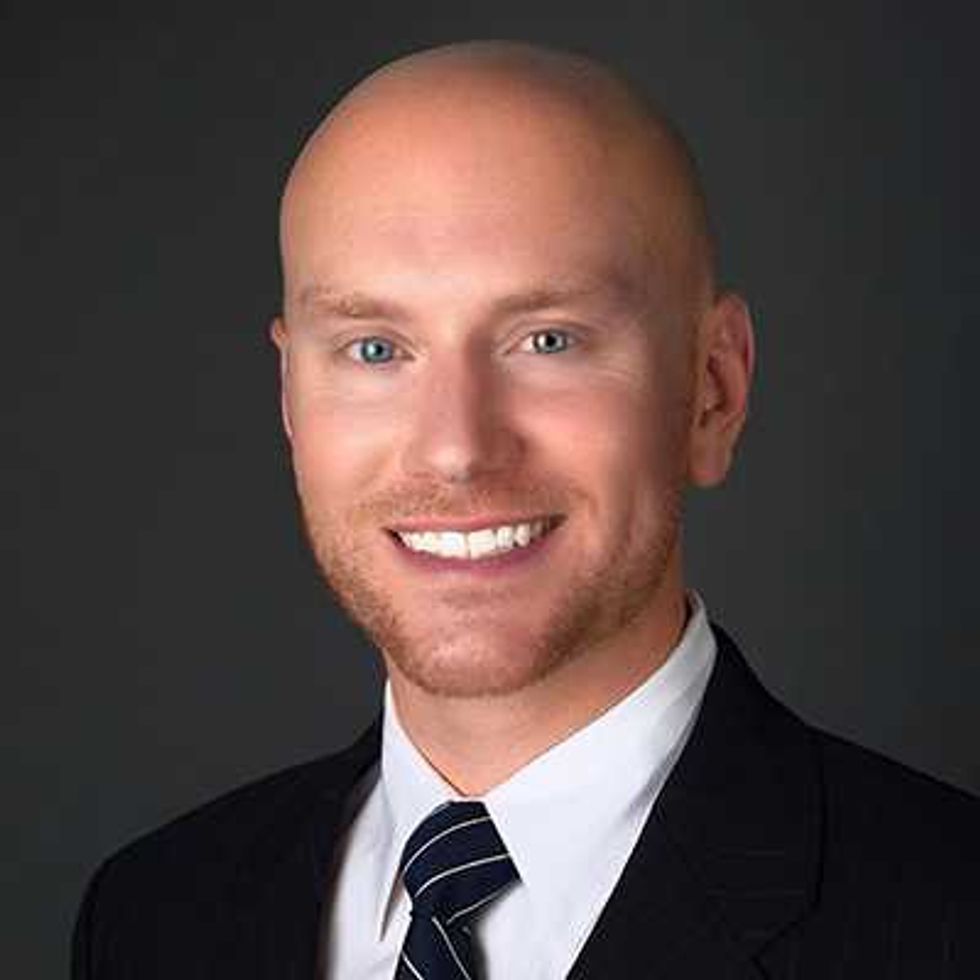
Democratic Nominee for First Selectman
Candidate profile
I am a fourth generation Sharon resident.My wife, Meghan, and I are raising our 12-year-old son Jack here and like many families, we care deeply about the future of Sharon. Professionally, I managed the grounds and maintenance at the Weatherstone Estate for designer Carolyn Roehm, where I learned the value of hard work and attention to detail. I also hold a bachelors degree in finance and economics, which I have put to use while serving on the Board of Selectmen and Board of Finance.
Why are you running for first selectman?
I am running for re-election because I believe our town deserves a leader who is hardworking, dedicated and experienced. I believe in the power of local government to make a real difference in people’s lives. I am running because I care deeply about this community, and I want to make sure every resident feels heard, valued and respected.
What issues deserve the most attention?
We need to invest in modern, resilient infrastructure that supports our residents- from safer roads and bridges to updated facilities. I will continue to prioritize upgrades that serve us today and will withstand the test of time.
How would you improve the town?
With a decade of experience in local government, I understand how to get things done. I am running for re-election to continue the work we’ve started. I will focus on identifying problems and working with my fellow selectmen, town employees and dedicated volunteers to find practical, lasting solutions — all while keeping Sharon a place we’re proud to call home.
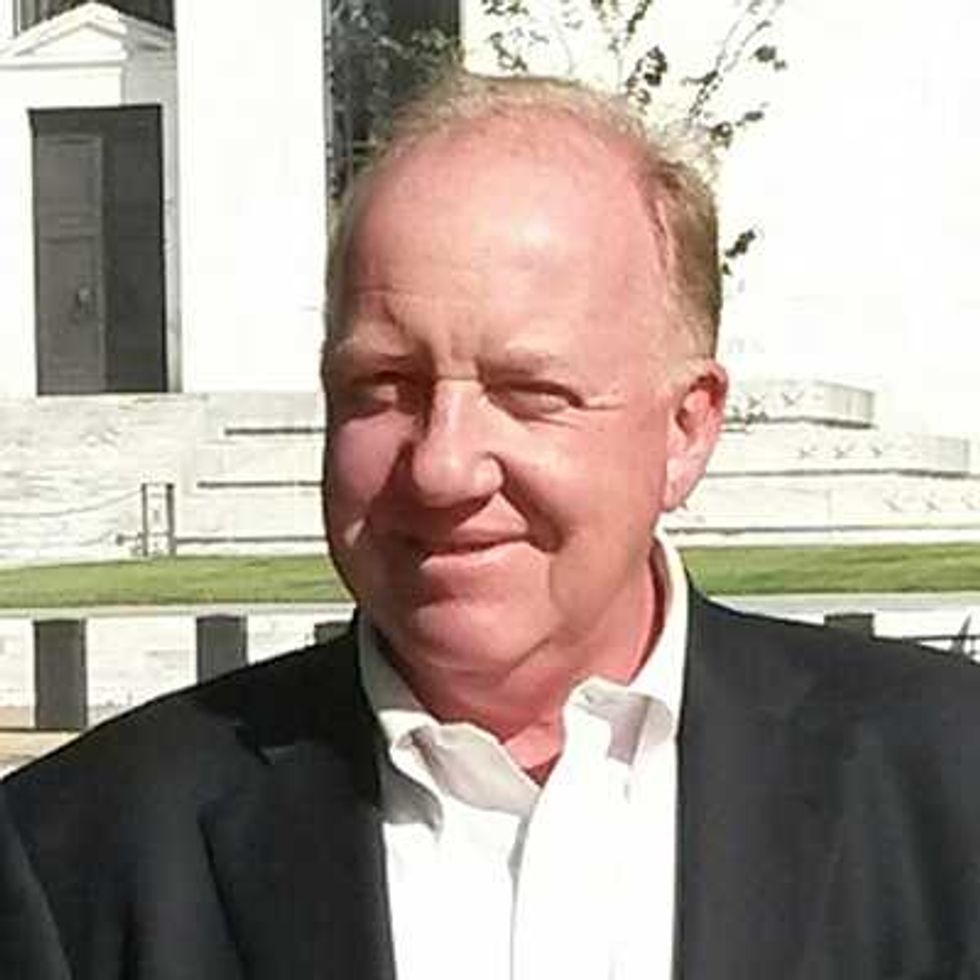
Unaffiliated Candidate for Selectman
Candidate profile:
I am running for a second term; the first term has served as hands on experience. I am involved in several local community organizations; Sharon Audubon, The Little Guild, and Artgarage among others. I am a hospice volunteer and I give time to the Sharon Land Trust as a trail volunteer. I am involved as well in the local music and art scene, especially my involvement in Artgarage. Finally, I have lived in Sharon for about 13 years.
Why are you running for selectman?
Having served a term in office, I wish to run for a second term. I’ve spent the last two years learning as much as I can about the workings of the town meeting form of municipal government. Paying close attention to the various committees and commissions and the processes they engage in has been revelatory and fascinating. My experience from the business world along with my more recent various non-profit organization involvement provides me an opportunity to continue to be of service to the town
What issues deserve the most attention?
I think the single biggest issue for our town (region, state and nation too) is accessible and affordable housing. The issue belies deteriorating demographics that our region is experiencing. Future development can be purposeful and mindful while retaining the natural beauty that is the hallmark of where we live. Another issue that deserves attention is traffic safety in our village and town. As our population and traffic issues grow, we need to address this proactively.
How would you improve the town?
After serving my first term, I am in constant awe of the many people that serve in positions for the town and/or various boards and commissions which guide the town’s management. The best single way to improve the town would be to find, develop and enlist new and existing local residents to serve the town in some capacity. As selectman in Sharon, people often come up to me with either a complaint, a request or a suggestion. I almost always respond with a statement: the people who show up, decide
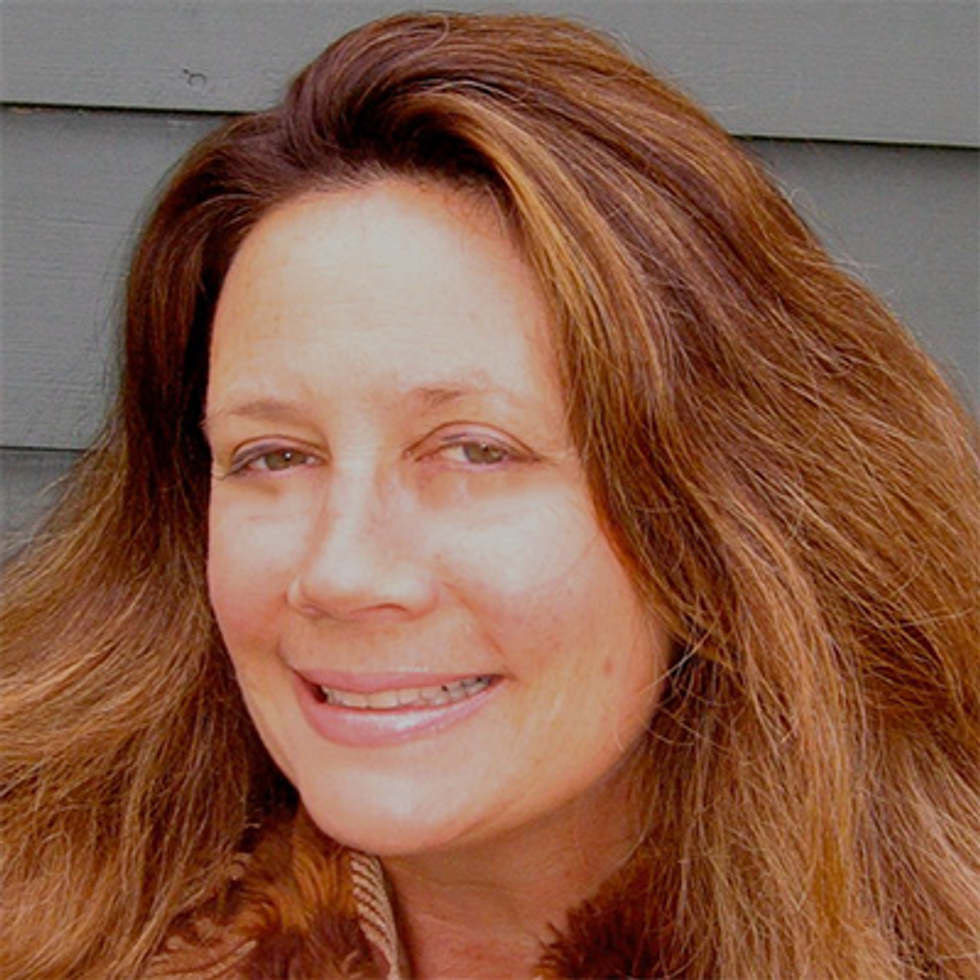
Democratic Nominee for Selectman
Candidate profile:
I was born and raised in Sharon. My parents purchased The Woodland Restaurant in the 50’s and we lived in Lakeville before moving to Sharon. I attended Sharon Center and HVRHS then moved to San Francisco where I attended college and was employed as a Gallery Assistant for Vorpal Gallery.I moved to New York City in 1980 working as an editor for magazines. In 1987 we purchased a home in Sharon. Locally, I had the honor to work for several years for the artist Jasper Johns.
Why are you running for selectman?
It took me two years to understand how a municipality functions. I would like to try another two believing that we as a team of Selectmen can accomplish a great deal. I must give credit to our knowledgeable Town Hall employees, road crew and Town volunteers whom I rely on and who make my job easier.I continue to be astonished at what they know, and what they willingly teach me.Government is a collaborative effort, we don’t always agree, but I believe we are all working for the common good.
What issues deserve the most attention?
Affordable housing, Mudge Pond, speeding/ traffic, keeping our school vibrant. Maintaining the rural nature of Sharon which demands thoughtful planning. Keeping our Green historic, beautiful and uncluttered.It is the face of Sharon, and we are fortunate to have a Committee and Commission who overlook the Green. Engaging the community to volunteer. Traditionally, volunteers have made the most significant impacts in Sharon; we need our residents to help us.
How would you improve the town?
This question stymied me two years ago and does so again. I think it’s the verb “improve” that bothers me, as it implies a slightly negative connotation. The running of a municipality is fluid; our First Selectman is the governing force and he deals with the day to day and long-term projects. We collectively work on issues within the Town, and I like to think “improvement” comes with thoughtful consideration of everything that comes before the Board, and following through on issues.
Get to know your candidates ahead of the 2025 municipal election. In Kent, Eric Epstein (D) is running unopposed for first selectman. There are two candidates for selectman: incumbent Lynn Mellis Worthington (D) and Lynn Harrington (R). All three will be seated on the Board of Selectmen. Below, each candidate offered information about themselves and their goals for the town.
Election Day is Nov. 4.
Early voting begins Oct. 20.
Kent’s polling station will be at Town Hall, 41 Kent Green Blvd.
Voting tabulators will be used. Absentee ballots are available from the Town Clerk. Absentee ballots can be placed in the ballot box outside Town Hall and will be counted at the polls.
Selectmen in Kent are elected to two-year terms. They are seated on the board two weeks after Election Day. The first selectman’s salary is budgeted at $83,647 while the other two selectmen are paid $6,051 each.
As unopposed candidates, Eric Epstein, Lynn Mellis Worthington and Lynn Harrington will be re-elected to serve on the Board of Selectmen through 2027.
At the heart of Connecticut’s municipal governance schema is the quintessentially New England selectboard, composed of the first selectman who administers day-to-day governance in town, and is assisted by two other selectmen. The Board of Selectmen is responsible for appointing various positions and roles in town commissions and for hiring and firing staff, as well as initiating and instituting town ordinances via Connecticut’s municipal democratic format, the Town Meeting. All selectmen in the Northwest Corner are allocated salaries from the town budget.
In other parts of Connecticut, some towns have begun the shift to a more modern leadership system. Winchester, for example, has adopted a “Council-Manager” form of governance. In this system, a non-partisan town manager was appointed to serve as the Chief Executive Officer of the town, supervising department heads and town staff, and the Board of Selectmen acts as the legislative body.
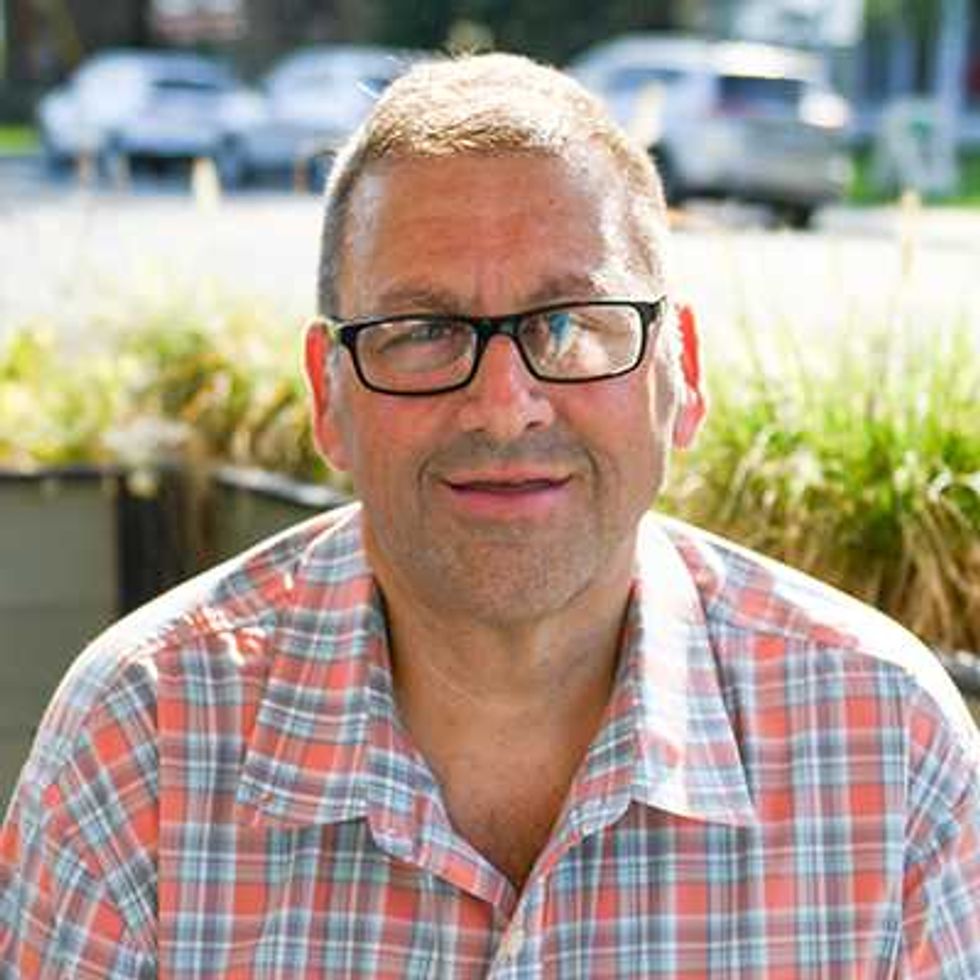
Democratic Nominee for First Selectman
Candidate profile:
Kent has always been home. I was born and raised here, I went to local schools, began my career here, and now my wife, MaryEllen, and I are raising our two children, Ella (11) and Even (8), in the same community. They attend Kent Center School just like I did. I’ve proudly served in the Kent Volunteer Fire Department for over 30 years, including 13 as Chief. That service has deepened my commitment to Kent and our community.
Why are you running for selectman?
I care deeply about this community and believe in its potential. We face real challenges, and I want to bring thoughtful, transparent leadership that puts people first to the task of meeting those challenges. I’ll work to keep Kent affordable, protect what makes it special, and ensure our town remains a place where everyone can thrive - now and for future generations.
What issues deserve the most attention?
Improving road and bridge infrastructure, expanding affordable housing, supporting all-age recreation, increasing school enrolment, enhancing emergency services, and driving economic development are key priorities. These areas directly impact quality of life, safety, and long-term prosperity. Addressing them requires careful planning, community input, and a strong commitment to fiscal prudence and responsible investment.
How would you improve the town?
To improve our town, I would listen closely to residents’ concerns, learn from their experiences, and engage in open, respectful dialogue. By building strong community connections and understanding local needs, I can help create thoughtful, inclusive solutions. I will take action with integrity and transparency, always keeping the best interests of our wonderful town and its people at heart. Together, we can shape a brighter future.
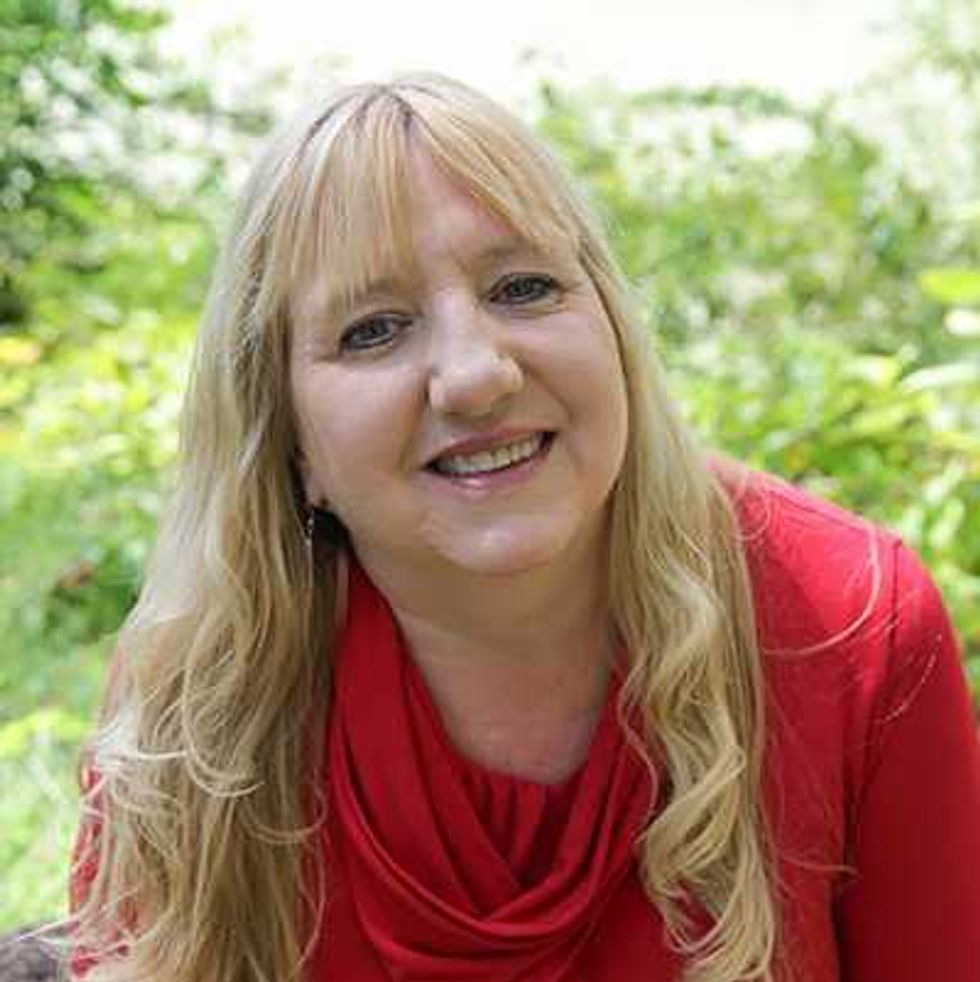
Republican Nominee for Selectman
Candidate profile:
I am a loyal 40-year resident of Kent having grown up in New Milford. I have been a bookkeeper for the last 30 years and am a former owner of the Bull’s Bridge Country Store. My husband and I currently own a small business in town. I am a former longtime member of the Parks and Recreation Commission and have volunteered for many organizations in Town including the KCS PTO and Boy Scouts. I recently joined our local CERT team.
Why are you running for selectman?
I love the rural character of Kent and its small-town feel. My husband and I have raised our two sons here and want them to be able to continue to live here. Ensuring others can do the same by keeping Kent rural and affordable for families and small businesses to thrive will be my main goal as Selectman. I have been active in the community for many years so I have a strong grasp on the strengths and weaknesses of Kent. This knowledge makes me a great candidate for the select board.
What issues deserve the most attention?
Providing services and housing for an aging population and encouraging housing that is affordable for all is key to the continued success of Kent. Just like many small towns in Connecticut, Kent is experiencing a lack of volunteers like First Responders. Encouraging volunteerism throughout town is something that is needed as some of the current volunteers age out. Fiscal responsibility is something that should be adhered to and I will use my background as a bookkeeper to achieve that goal.
How would you improve the town?
I would push to improve communication with various stakeholders on the State and local level to provide environmentally friendly recreational use of the Housatonic River. I would encourage a dialog with Troop L Barracks to address traffic/speeding issues especially through the middle of Town. I would encourage an open dialog between the members of the Board enabling decisions that are made in a timely manner and for the good of the Town and its residents.
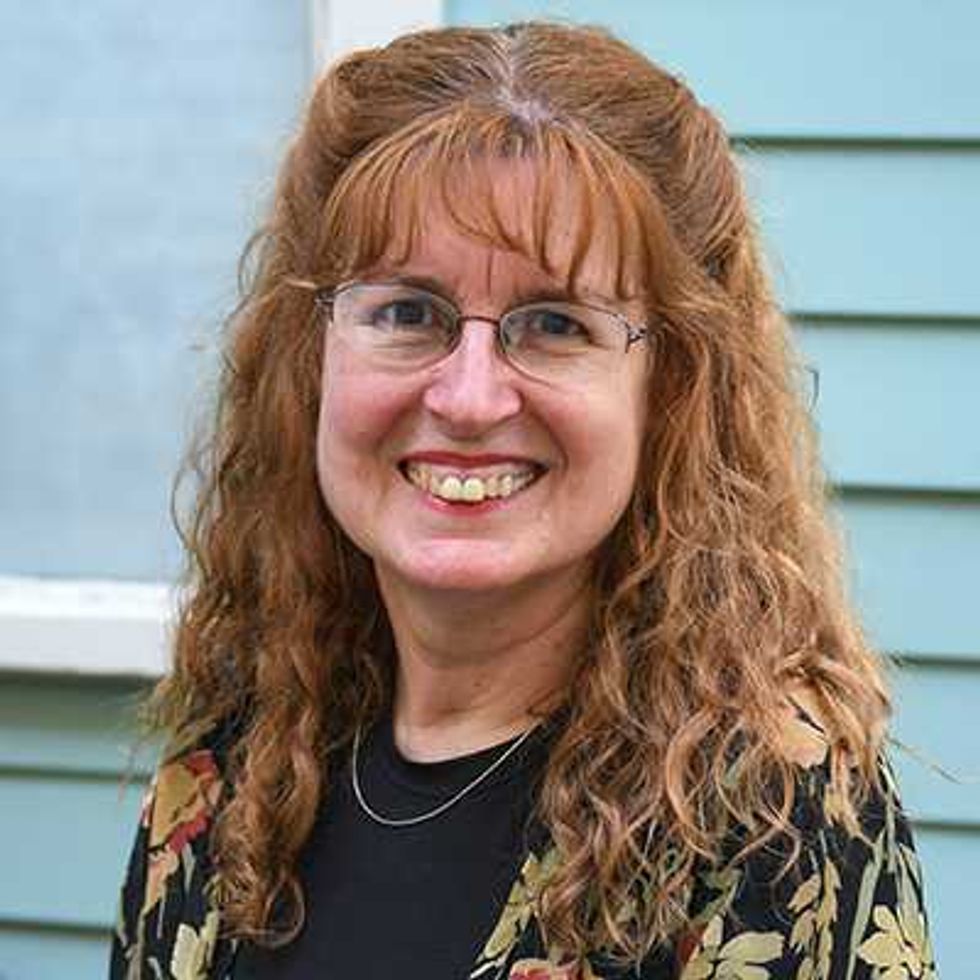
Democratic Nominee for Selectman
Candidate profile:
I have lived and worked in Kent for 35 years. I’ve served two years as selectman. I’ve worked as a journalist covering the town’s issues, as well as a faculty member at South Kent School. I was a Kent volunteer firefighter and KVFD emergency member for 21 years. I’ve also served on many non-profit boards, including the Kent Historical Society. My BS in Journalism degree is from Ohio University. I currently work as the Community Engagement Coordinator at Brooker Memorial in Torrington.
Why are you running for selectman?
As an incumbent selectman, I want to continue the progress that’s been made in the last two years. I have proven myself to be someone who researches issues and comes to meetings prepared to fully discuss the topics. I ask a lot of questions, so that townspeople can learn more about the issues facing the town. In many cases, I had a wealth of background or historical knowledge from my many years of covering Kent as a reporter. I want to keep the momentum going so Kent continues to thrive.
What issues deserve the most attention?
The issues that deserve the most attention for the Kent Board of Selectmen are a focus on infrastructure completion, such as roads and bridges, improving the communication and cooperation with the emergency services, such as the Kent Volunteer Fire Department, and enhancing the town’s economy and well-being through establishing an Economic Development Commission. Improving the efficiency of town government is another focus that deserves effective policies and procedures in place.
How would you improve the town?
The selectmen will need to manage the capital projects so that those that have been funded will be completed in a timely fashion. Roads and bridges needing improvement must be identified and prioritized based on current conditions. The selectmen must work cooperatively with KVFD to assist managing the costs and strengthening volunteerism in the organization. The cultural and business community must be celebrated and supported through economic development.
Get to know your candidates ahead of the 2025 municipal election. In North Canaan, there are two candidates for first selectman and two candidates for selectman vying for a seat on the town board. Below, each candidate offered information about themselves and their goals for the town.
Election Day is Nov. 4. Early voting begins Oct. 20.
North Canaan’s polling station will be at Town Hall, 100 Pease Street. Voting tabulators will be used. Absentee ballots are available from the Town Clerk. Absentee ballots can be placed in the ballot box outside Town Hall and will be counted at the polls.
Selectmen in North Canaan are elected to two-year terms. They are seated on the board one week after election day. The budgeted annual salary of the first selectman is $24,000 and the annual salary of the other two selectmen is $6,500 each.
The candidate for first selectman that receives the most votes will become first selectman through 2027. The remaining first selectman candidate then drops into the pool with the candidates for selectman and the top two vote getters will become selectmen through 2027 (subject to state law on minority representation).
At the heart of Connecticut’s municipal governance schema is the quintessentially New England selectboard, composed of the first selectman who administers day-to-day governance in town, and is assisted by two other selectmen. The Board of Selectmen is responsible for appointing various positions and roles in town commissions and for hiring and firing staff, as well as initiating and instituting town ordinances via Connecticut’s municipal democratic format, the Town Meeting. All selectmen in the Northwest Corner are allocated salaries from the town budget.
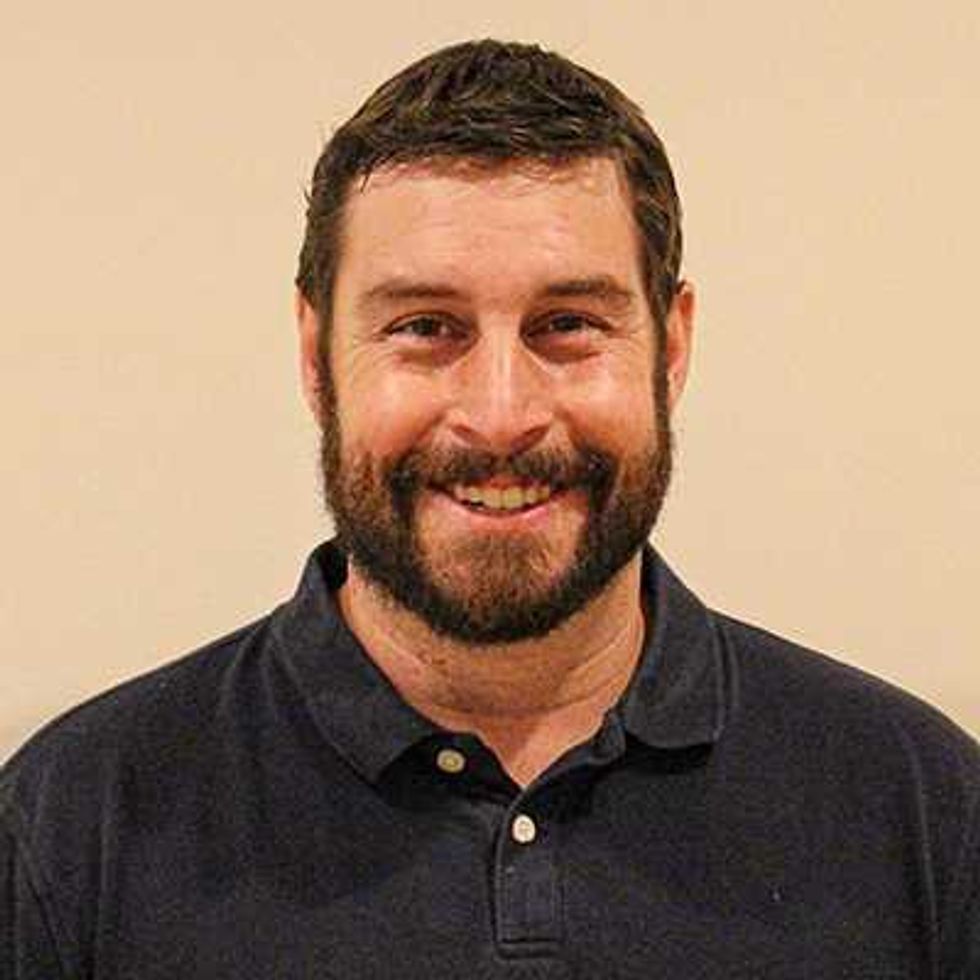
Democratic Nominee for First Selectman
Candidate profile:
My family has been blue collar in North Canaan for generations. I know hard work. I started mowing lawns at 12, now I run the family excavation business my grandfather built. My wife Kim and I are proud to be raising our growing family here. I’m not a politician, I’m a tradesman and a neighbor who stepped up because I care about this town and wanted to be part of the process. For me it has never been about a party label, it has only been about what matters for residents of North Canaan.
Why are you running for first selectman?
We deserve better. Running a business has taught me something simple: treat people right, be straight with them and work together to achieve our common goals. This is about neighbors helping neighbors and always listening to the taxpayers. I want to work with business owners on their needs and how we can support new businesses that choose North Canaan. Small changes can make a big difference. North Canaan should be a place where you can live and support your family without breaking the bank.
What issues deserve the most attention?
Let’s focus on common sense and community. We have millions in the bank that can earn interest in state programs safely to lower taxes and maintain liquidity. Wastefully spending $10,000/month for interim staff and ballooning legal bills. Locks being changed and threats to a 31-year public servant without due process. Putting a dog park next to a playground without discussion or approval. We need open government, financial responsibility and leaders who work together instead of playing games.
How would you improve the town?
The key to serving North Canaan is communication and teamwork. Elected officials work for you, the taxpayers, and you deserve to know the details and be involved in decisions with total transparency. Selectmen need to work together with our town boards and residents to make decisions that benefit the town, your voice should be heard. We need to be smart with money, lower taxes and invest where we can and go after grants.
Let’s support children and families. Let’s work together, then act.
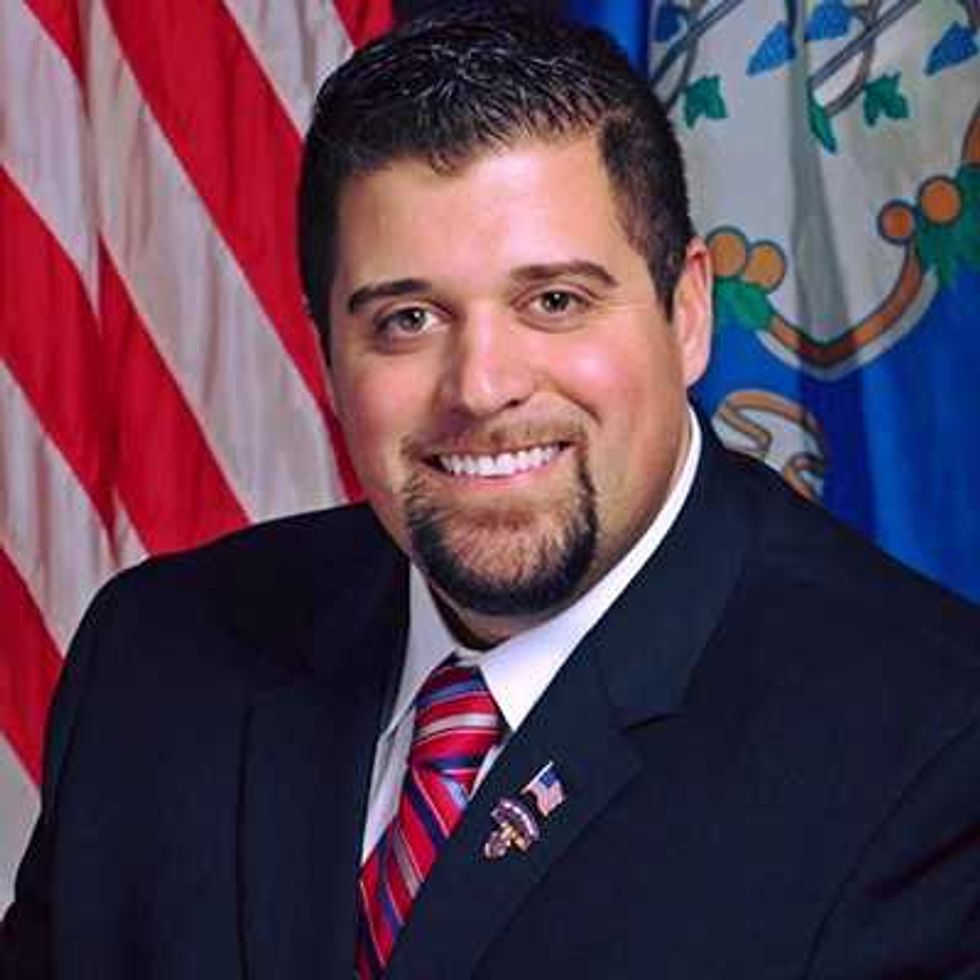
Republican Nominee for First Selectman
Candidate profile:
My family and I are proud to call North Canaan home for six generations; along with my beautiful wife, Meagan, and our precious baby girl, Saylor Rose. I have dedicated my life to service. No matter the capacity, no matter the role, I have never given up on the challenges that we face. My professional experience as a health care administrator and non-profit executive, along with my formal MPA/MHA education, have best enabled me to fully understand and execute the demands of a First Selectman.
Why are you running for first selectman?
We have accomplished so much in just our first two years together. We have fully modernized rural government, expanded our communications, increased departmental efficiencies, and drastically decreased frivolous expenses. We’ve saved over $250K in ancillary costs, while growing our General Fund into the millions. Melissa Pinardi-Brown and I are running to further build on this progress and to ensure that North Canaan keeps heading in a forward direction. Visit www.brianohler.com for more info.
What issues deserve the most attention?
Since making the foundational changes that were needed, the groundwork is now set to continue making noticeable strides when it comes to our economic and financial viability. We must continue to tighten our spending belt and expand our tax base through sensible development; which will enable us to further reduce the mill rate, creating much needed relief to taxpayers. Families and businesses can thrive here, as we champion what is possible and what can happen with a truly responsible government.
How would you improve the town?
Our dedicated team will continue to collaborate with residents and businesses, to ensure that we have developed a fully comprehensive plan for economic development, workforce/affordable housing, infrastructure enhancement, and area conservation. This plan and vision will then be executed in a manner that is truly guided by our town’s principles and our collective drive to go from concept, to paper, to shovel-ready, to full realization.
This forward-thinking endeavor is possible and will happen.
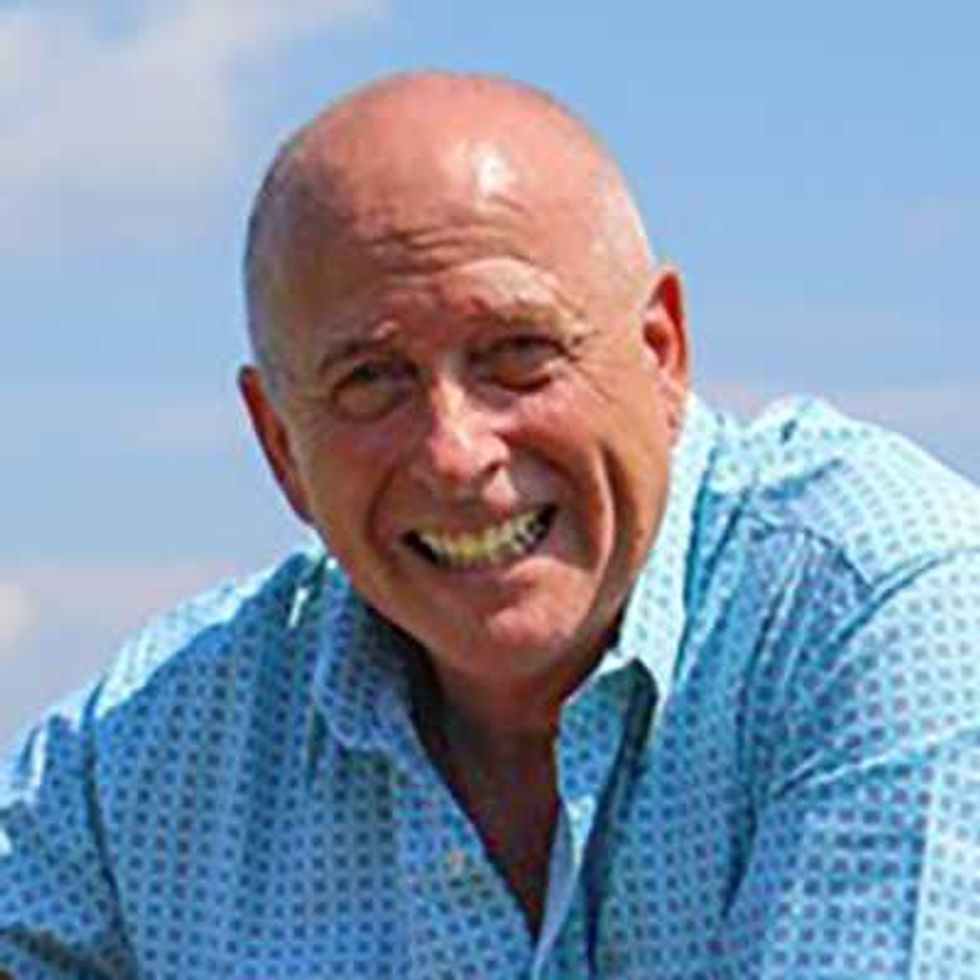
Unaffiliated Candidate for Selectman
Candidate profile:
I was born and raised in Canaan, attended North Canaan Elementary School and HVRHS. I am married to Katina Sebben and we have two children, Sabrina and Tyler, who also attended those schools and currently live in Canaan. My father was the local barber for 58 years —and he and his sisters and brothers were raised in Canaan. For 46 years I owned a lawn service and currently work at Housatonic Railroad. Me and my family are committed and dedicated to Canaan and its residents.
Why are you running for selectman?
I believe everyone needs to have a voice in the town and its government. I want to be sure that all residents can voice their opinions and concerns. I believe that I have the ability to bring residents together and to reach out to other state and congressional leaders to bring money, resources and ideas to Canaan to better serve our community.
What issues deserve the most attention?
The mill rate — we need to determine why the mill rate continues to be higher than surrounding towns. We should convene meetings with elected officials, board of education. and other citizens who can delve into this matter and address the rising costs to determine if we can cut expenses. All of the town equipment, buildings, computers, should be on a 5-year plan. We should review possibly subcontracting town road maintenance for plowing and mowing to see how to save taxpayers’ money.
How would you improve the town?
I would have regular meetings with the business community and residents to learn how we can work together to move Canaan forward and to hear their ideas and opinions. I would have an open-door policy. We need more communication and understanding of the issues and listening to all sides.I would evaluate all non-elected employees and their job descriptions to determine what changes should be made, if any, so that together we can move forward and be proactive to our residents.
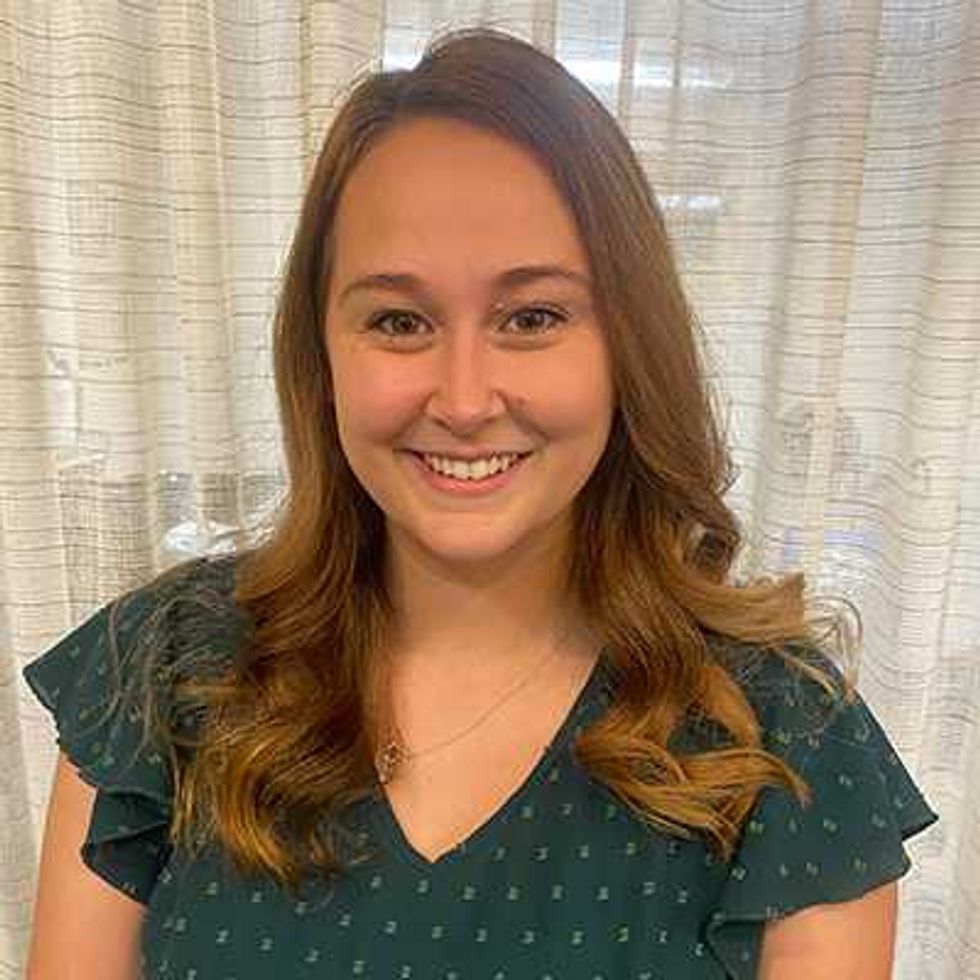
Republican Nominee for Selectman
Candidate profile:
I moved to Canaan in 2013 to spend the summer working at Lone Oak Campsites when I met my husband, Cooper Brown. I fell in love with Canaan’s small town feel and family-like community. Since moving here I have felt so embraced by our town. I have 2 small businesses, and have recently joined the Recreation Commission. As a home owner, business owner and parent I feel I can relate to everyone in our community in someway. I am so looking forward to serving the town who has been so welcoming to me.
Why are you running for selectman?
Six years ago I started to attend zoning and selectman meetings after having unpleasant experiences with different departments when attempting to purchase a building for my business. I attended meetings hoping to see positive changes in the way these departments were running. In the last couple years I’ve definitely noticed improvements. I would love to become more involved and help continue this progress. Everyone should have the same opportunities to start and grow their business in our town.
What issues deserve the most attention?
I feel that our current board has done a great job trying to keep our budget in check this past year. I would love to continue this work to help bring our taxes down. As a homeowner and business owner I fully understand the burden of a higher tax rate and look forward to exploring ways to continue to stay within budget. As a mother I also want to see the schools appropriately funded, continuing to offer our children the safest and best possible education.
How would you improve the town?
Being behind the chair in the salon, I get to hear from a lot of different people who live in our town. They are always so open about things they would like to see happen as well as items that could use some attention. Public safety, the success of our schools, and overall affordability are the main concerns I would like to focus on. Brian Ohler has already done so much in just two years, and I know that together we will accomplish even more for the people of North Canaan.